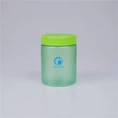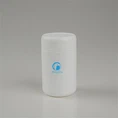The diet of patients with chronic cheilitis needs to follow the principle of light and balanced nutrition, and avoid eating foods that will aggravate lip inflammation. The following are specific dietary precautions:
Acceptable food
Foods rich in vitamins
Rich in B vitamins: Whole grains such as brown rice, oats, whole wheat bread, as well as lean meats, eggs, beans, etc. B vitamins are essential for maintaining the health of the lip mucosa and can promote mucosal repair and metabolism.
Rich in vitamin C: oranges, lemons, strawberries, kiwi and other fruits are rich in vitamin C, which has antioxidant effects, can enhance immunity, and promote the repair of lip tissue. Fresh vegetables such as broccoli, green pepper and spinach are also good sources of vitamin C, and patients can eat more appropriately.
Foods rich in protein
High-quality animal protein: Fish is rich in high-quality protein and unsaturated fatty acids, such as salmon, cod, etc., which is easy to digest and absorb, helps to enhance the body's resistance, and provides nutritional support for the repair of lip tissue. Chicken, beef and other lean meat is also a good choice, they are rich in a variety of trace elements, good for recovery.
Vegetable protein: beans and soy products are rich in vegetable protein, such as tofu, soy milk, etc., patients can be reasonably ingested to meet the body's protein needs.
Foods rich in water
Vegetables and fruits: cucumbers, tomatoes, watermelon and other vegetables and fruits with high water content can supplement the water needed by the body, indirectly provide water support for the lips, keep the lip mucosa moist, and alleviate the symptoms of dry lips.
Soup type: You can drink some light soup, such as vegetable soup, white fungus soup, etc., which can supplement water and provide certain nutrition.
Avoid food
Spicy and irritating food: hot pepper, peppercorns, mustard, ginger, garlic and other spicy food will produce strong stimulation on the lip mucosa, resulting in lip vasodilation, aggravate the inflammatory response of the lip, aggravate the symptoms of redness, swelling, pain and so on, is not conducive to the recovery of the disease, should be avoided as far as possible.
Hot food: Eating food that is too hot will burn the lip mucosa, further damage the fragile tissue of the lip, affect the recovery of chronic cheilitis, and may even lead to deterioration of the condition, so you should wait for the food to cool to the appropriate temperature before eating.
Sensitizing foods: Seafood foods such as shrimp, crab, shellfish, and fruits such as mango and pineapple are easy to cause allergic reactions, which may lead to increased lip inflammation, itching, redness and other symptoms. If the patient is allergic to certain foods, they should strictly avoid them during cheilitis.
High-salt and high-sugar foods: excessive intake of high-salt foods will cause water imbalance in the body and aggravate dry lips; High-sugar foods are easy to breed bacteria, which may lead to lip infections and is not conducive to the recovery of cheilitis. Such as pickles, pickled products, candy, cakes, etc., should be eaten less.
What should chronic cheilitis patient pay attention to on diet?
Feb 08, 2025Leave a message
Send Inquiry
















